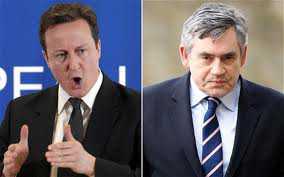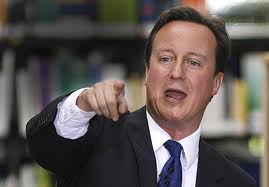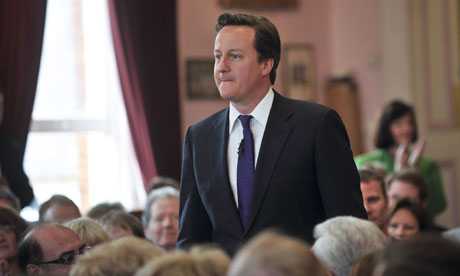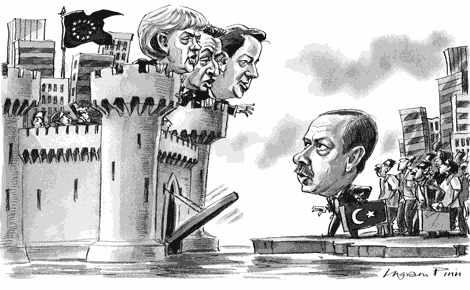 KATE DEVLIN UK POLITICAL CORRESPONDENT
KATE DEVLIN UK POLITICAL CORRESPONDENT
A senior economist accused David Cameron of being vindictive yesterday after the Prime Minister suggested he would block Gordon Brown from getting a top international job.
David Blanchflower, a former member of the Bank of England’s Monetary Policy Committee, described the PM’s stance as “small minded”.
It follows speculation that Mr Brown might be put forward to head the International Monetary Fund (IMF). Crucial for any nomination would be the endorsement of the individual’s home country.
However, Mr Cameron indicated he would block a potential bid by his predecessor as Prime Minister. He said Mr Brown “might not be the most appropriate person” for the job, because of his record in office.
In a deliberate jibe at the former Labour leader, he added that he thought the job should go to “someone who understands the danger of excessive debt”.
The Tories and the LibDems have been highly critical of Labour’s economic record since entering Coalition last year, blaming the party for leaving them with a record deficit.
Labour have defended their time in office, and claim the problems we caused by the global banking crisis.
Mr Brown gave a speech on economics to students at Edinburgh University last night, based on his book, Beyond The Crash. He was defended by current Labour leader Ed Miliband, who said he was “eminently qualified” for the job.
Mr Miliband also attacked Mr Cameron’s comments saying: “To rule someone out even before the vacancy has arisen seems to be going some, even for him.”
Asked about the PM’s remarks, Mr Blanchflower said: “This is the most vindictive thing I’ve heard from a Prime Minister in 50 years. It looks to me to be extremely small-minded.”
The role of managing director of the IMF carried a salary of around £270,000, as well as a crucial position in world finance. Countries currently in receipt of IMF aid include Greece and the Republic of Ireland.
It is expected the job could become free if current head Dominique Strauss-Kahn stands down this summer to mount a bid for the French presidency. There has also been speculation his replacement would come from countries with emerging world markets.
It is not the first time Mr Brown’s name has been linked with the job. In 2004, when he was chancellor, Downing Street was forced to shrug off rumours about him joining the IMF.
In recent months the IMF has repeatedly backed the Coalition austerity drive, including cuts of £81m in public spending.
Ironically, the Tories have also been vocally critical of Mr Brown’s workload in recent weeks.
The former PM did not speak in the Budget debate last month and has voted only a handful of times in the House of Commons since leaving Downing Street.
His office says he has concentrated on constituency work as well as writing his book.
heraldscotland.com, 20 Apr 2011







